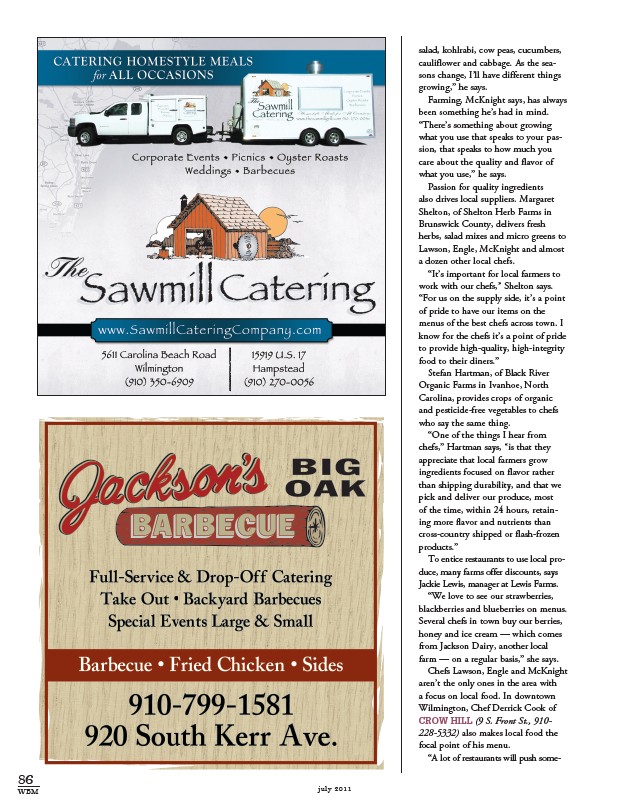
86
WBM july 2011
salad, kohlrabi, cow peas, cucumbers,
cauliflower and cabbage. As the seasons
change, I’ll have different things
growing,” he says.
Farming, McKnight says, has always
been something he’s had in mind.
“There’s something about growing
what you use that speaks to your passion,
that speaks to how much you
care about the quality and flavor of
what you use,” he says.
Passion for quality ingredients
also drives local suppliers. Margaret
Shelton, of Shelton Herb Farms in
Brunswick County, delivers fresh
herbs, salad mixes and micro greens to
Lawson, Engle, McKnight and almost
a dozen other local chefs.
“It’s important for local farmers to
work with our chefs,” Shelton says.
“For us on the supply side, it’s a point
of pride to have our items on the
menus of the best chefs across town. I
know for the chefs it’s a point of pride
to provide high-quality, high-integrity
food to their diners.”
Stefan Hartman, of Black River
Organic Farms in Ivanhoe, North
Carolina, provides crops of organic
and pesticide-free vegetables to chefs
who say the same thing.
“One of the things I hear from
chefs,” Hartman says, “is that they
appreciate that local farmers grow
ingredients focused on flavor rather
than shipping durability, and that we
pick and deliver our produce, most
of the time, within 24 hours, retaining
more flavor and nutrients than
cross-country shipped or flash-frozen
products.”
To entice restaurants to use local produce,
many farms offer discounts, says
Jackie Lewis, manager at Lewis Farms.
“We love to see our strawberries,
blackberries and blueberries on menus.
Several chefs in town buy our berries,
honey and ice cream — which comes
from Jackson Dairy, another local
farm — on a regular basis,” she says.
Chefs Lawson, Engle and McKnight
aren’t the only ones in the area with
a focus on local food. In downtown
Wilmington, Chef Derrick Cook of
Crow Hill (9 S. Front St., 910-
228-5332) also makes local food the
focal point of his menu.
“A lot of restaurants will push some-